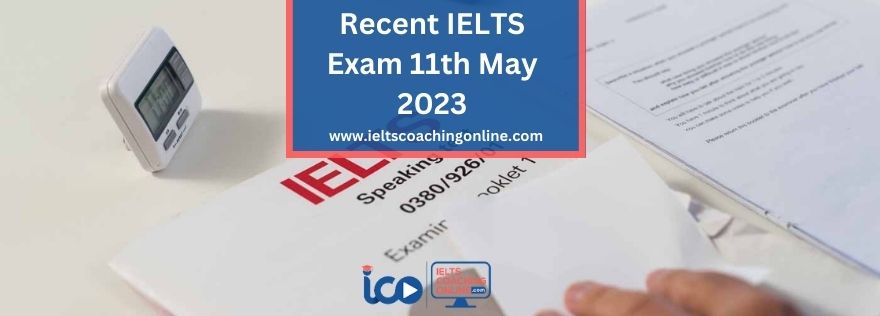SOME PEOPLE THINK THAT INTERVIEW IS NOT RELIABLE METHOD OF CHOOSING WHOM TO EMPLOY AND THERE ARE OTHER BETTER METHODS. TO WHAT EXTENT DO YOU AGREE OR DISAGREE.

Interviews are often considered an unreliable method for selecting candidates for employment. The subjective nature of interviews makes it difficult to assess a candidate’s true abilities. Additionally, interviewers may be influenced by personal biases, leading to an unfair selection process. Therefore, it can be argued that there are better methods available for choosing suitable employees.
One alternative method is to rely on standardized tests and assessments. These tests can objectively measure a candidate’s skills and knowledge, providing a more reliable basis for decision-making. Moreover, using a combination of written exams and practical exercises can offer a comprehensive evaluation of a candidate’s capabilities.
Despite these alternatives, interviews can still be valuable when used in conjunction with other methods. A multi-faceted approach that includes interviews, tests, and reference checks may yield more accurate results. However, solely relying on interviews for employee selection may not be the most effective strategy.
In conclusion, interviews have limitations in terms of reliability for employment decisions. Emphasizing standardized tests and other assessment methods can enhance the objectivity and fairness of the selection process.
The reliability of interviews as a method for choosing employees is a subject of debate. Some argue that interviews are not the most dependable way to assess candidates, and there are alternative methods that could yield better results. While I agree that interviews have their limitations, I believe they can be valuable when used appropriately.
One issue with interviews is the potential for bias. Interviewers may form judgments based on non-professional factors, such as appearance or personal connections. This subjectivity can lead to unfair outcomes. However, this doesn’t negate the value of interviews entirely.
Other methods, such as standardized tests, can provide objective data about a candidate’s skills. However, these tests may not capture essential interpersonal skills or the ability to adapt to real-world scenarios. A combination of interviews and assessments might provide a more holistic view of a candidate’s suitability for a position.
In conclusion, while interviews may have shortcomings, they remain a valuable tool in the hiring process. Employers should consider a balanced approach, incorporating various methods to make informed and fair decisions.
The effectiveness of interviews in selecting employees is a contentious issue. Some argue that interviews are inherently unreliable, favoring alternative methods for hiring decisions. While interviews have their limitations, I believe they offer unique insights into a candidate’s suitability for a role.
One drawback of interviews is the potential for bias, leading to subjective judgments. This can result in overlooking qualified candidates or favoring those with strong interview skills but limited practical abilities. To mitigate this, companies can adopt a structured interview approach, using predetermined questions and evaluation criteria.
Alternative methods, such as skills tests and personality assessments, provide objective data. However, they may not fully capture a candidate’s ability to handle real-world challenges or work effectively within a team. Interviews, when conducted skillfully, can assess these aspects by allowing candidates to showcase their interpersonal skills and problem-solving abilities.
In conclusion, while interviews may have limitations, they remain a valuable tool for evaluating candidates. A thoughtful combination of interviews and other methods can enhance the hiring process, ensuring a comprehensive assessment of a candidate’s potential.
The reliability of interviews as a method for selecting employees is a nuanced issue. While interviews have their shortcomings, they can be valuable when conducted strategically. However, it is essential to recognize the limitations and consider alternative methods to complement the selection process.
One significant drawback of interviews is the potential for bias. Interviewers may be influenced by personal preferences, leading to subjective judgments. To address this, companies can implement structured interview formats and provide training to interviewers to minimize biases and ensure fair assessments.
Alternative methods, such as skills tests and simulations, offer objective insights into a candidate’s abilities. These assessments can provide valuable data on technical skills and problem-solving capabilities. However, they may not fully capture qualities like communication skills and cultural fit, which interviews can assess effectively.
In conclusion, interviews, when used judiciously, can offer unique insights into a candidate’s suitability for a role. To enhance reliability, companies should adopt a comprehensive approach, combining interviews with objective assessments to make well-informed and fair employment decisions.
The debate surrounding the reliability of interviews in employee selection warrants consideration of both their advantages and limitations. While interviews can be subjective, they provide a crucial platform for assessing a candidate’s interpersonal skills and cultural fit within an organization.
One of the primary criticisms of interviews is the potential for bias. However, this can be mitigated through rigorous interviewer training and the use of structured interview formats. By focusing on predetermined questions and evaluation criteria, companies can ensure a fair and objective assessment.
Alternative methods, such as skills tests and assessments, offer valuable insights into a candidate’s technical abilities. Yet, they may fall short in evaluating qualities like leadership, adaptability, and communication skills. Interviews excel in revealing these intangible attributes, providing a holistic view of a candidate’s potential contribution to a team.
In conclusion, interviews remain a vital component of the employee selection process. When conducted thoughtfully and in conjunction with other assessment methods, they contribute significantly to identifying well-rounded candidates who not only possess the required skills but also align with the company’s values and culture.
The role of interviews in employee selection is a multifaceted issue that requires a nuanced perspective. While interviews have their limitations, they offer unparalleled insights into a candidate’s soft skills, which are integral to success in many professional roles.
One of the major criticisms of interviews is the potential for bias. However, companies can address this concern by implementing structured interview processes, providing training to interviewers, and establishing clear evaluation criteria. This ensures a fair and objective assessment, minimizing the impact of personal biases.
Alternative methods, such as standardized tests and skills assessments, provide valuable data on a candidate’s technical proficiency. However, they may not capture essential qualities like emotional intelligence, teamwork, and adaptability. Interviews excel in revealing these aspects, allowing employers to gauge a candidate’s overall suitability for a role.
In conclusion, interviews, when conducted skillfully, remain an indispensable tool in the employee selection process. Companies should recognize the unique value of interviews in assessing soft skills and combine them with other assessment methods for a comprehensive and reliable hiring process.
The efficacy of interviews in selecting the right candidates for employment is a complex matter. While it is true that interviews have inherent limitations, they remain an invaluable method for evaluating a candidate’s interpersonal skills, cultural fit, and overall potential contribution to an organization.
One key concern with interviews is the potential for bias. To address this, companies can implement rigorous interviewer training, standardized questioning, and clear evaluation criteria. This ensures a fair and objective assessment, mitigating the impact of personal biases and subjective judgments.
While alternative methods, such as skills tests and assessments, provide objective data on a candidate’s technical abilities, they may fall short in assessing qualities like leadership, communication, and adaptability. Interviews excel in revealing these crucial soft skills, offering a comprehensive understanding of a candidate’s capabilities beyond what standardized tests can measure.
To reiterate, interviews, when integrated thoughtfully into the hiring process, contribute significantly to making informed and well-rounded employment decisions. Employers should recognize the unique value of interviews in assessing both technical proficiency and essential requirements.






Im obliged for the blog. Want more.
Helpful information. Fortunate me I discovered your web site by accident, and I’m surprised why this accident didn’t took place earlier! I bookmarked it.
Thanks for helping out, fantastic info .
I really value your piece of work, Great post.
Some really good content on this web site, thanks for contribution.
I believe this site contains some real great information for everyone : D.
I have read some good stuff here. Certainly worth bookmarking for revisiting. I surprise how much effort you put to make such a great informative web site.
Some genuinely nice stuff on this website , I enjoy it.